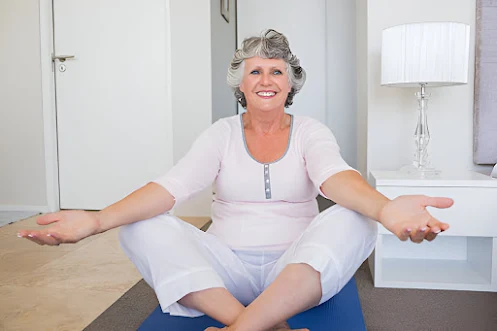Mit zunehmendem Alter wird eine ausgewogene Ernährung wichtiger denn je – besonders für die Gesundheit des Herzens. Herz-Kreislauf-Erkrankungen gehören zu den häufigsten Gesundheitsproblemen bei älteren Menschen. Die gute Nachricht ist: Mit der richtigen Ernährung kann man viel dafür tun, das Herz zu schützen und das allgemeine Wohlbefinden zu fördern.
In diesem Beitrag stellen wir einfache, alltagstaugliche und herzfreundliche Rezepte für Senioren vor, die nicht nur gesund, sondern auch richtig lecker sind.
🫀 Warum herzgesunde Ernährung für Senioren so wichtig ist
Das Herz verändert sich mit dem Alter: Die Blutgefäße werden starrer, der Blutdruck steigt, und das Risiko für Herzinfarkte oder Schlaganfälle nimmt zu. Doch viele dieser Probleme lassen sich durch eine gesunde Ernährung deutlich mindern.
Ziel einer herzgesunden Ernährung:
-
Senkung des Blutdrucks
-
Reduktion von Cholesterin
-
Unterstützung eines gesunden Körpergewichts
-
Entzündungshemmende Wirkung
-
Förderung der Durchblutung
✅ Die wichtigsten Lebensmittel für ein gesundes Herz
Hier sind einige der besten herzstärkenden Nahrungsmittel:
-
Fettreicher Fisch (z. B. Lachs, Makrele, Hering): Enthält Omega-3-Fettsäuren
-
Vollkornprodukte: Hafer, Dinkel, Quinoa, Vollkornbrot
-
Obst und Gemüse: Reich an Antioxidantien und Ballaststoffen
-
Hülsenfrüchte: Bohnen, Linsen, Kichererbsen
-
Nüsse und Samen: Walnüsse, Leinsamen, Chiasamen
-
Olivenöl: Gesunde einfach ungesättigte Fette
-
Avocado: Gut für Cholesterinspiegel und Blutdruck
-
Knoblauch: Wirkt blutdrucksenkend und entzündungshemmend
🍲 Herzfreundliche Rezepte – Einfach, lecker und seniorengerecht
1. Haferbrei mit Apfel und Zimt
Zutaten:
-
50 g zarte Haferflocken
-
250 ml fettarme Milch oder pflanzliche Alternative
-
1 kleiner Apfel, gerieben
-
½ TL Zimt
-
1 TL Leinsamen
Zubereitung:
-
Haferflocken mit Milch und Apfel in einem Topf erhitzen.
-
5 Minuten bei mittlerer Hitze köcheln lassen.
-
Zimt und Leinsamen unterrühren und warm servieren.
Vorteil: Ballaststoffe aus Hafer senken den Cholesterinspiegel, Zimt wirkt entzündungshemmend.
2. Lachsfilet mit Ofengemüse
Zutaten:
-
1 Lachsfilet (ca. 120–150 g)
-
1 Zucchini
-
1 rote Paprika
-
1 kleine Süßkartoffel
-
1 EL Olivenöl
-
Zitronensaft
-
Frischer Dill oder Petersilie
Zubereitung:
-
Ofen auf 180 °C vorheizen.
-
Gemüse klein schneiden, mit Olivenöl mischen und auf ein Blech geben.
-
Lachsfilet mit Zitrone beträufeln und dazugeben.
-
20–25 Minuten backen. Mit Kräutern garnieren.
Vorteil: Omega-3-Fettsäuren im Lachs schützen das Herz, das bunte Gemüse liefert wichtige Vitamine.
3. Linsensuppe mit Möhren und Sellerie
Zutaten:
-
100 g rote Linsen
-
1 Karotte, gewürfelt
-
1 Stange Sellerie, klein geschnitten
-
1 kleine Zwiebel
-
1 EL Olivenöl
-
1 TL Kurkuma
-
700 ml Gemüsebrühe (natriumarm)
Zubereitung:
-
Zwiebel, Karotte und Sellerie in Öl andünsten.
-
Linsen und Kurkuma hinzufügen, kurz mitrösten.
-
Mit Brühe ablöschen und 20 Minuten köcheln lassen.
-
Nach Belieben pürieren oder stückig lassen.
Vorteil: Linsen liefern Eiweiß und Ballaststoffe, Kurkuma wirkt entzündungshemmend.
4. Vollkorn-Nudelsalat mit Avocado und Tomaten
Zutaten:
-
100 g Vollkornnudeln
-
1 Avocado, gewürfelt
-
100 g Kirschtomaten
-
Frischer Basilikum
-
1 EL Olivenöl
-
1 TL Balsamico-Essig
-
Pfeffer nach Geschmack
Zubereitung:
-
Nudeln al dente kochen und abkühlen lassen.
-
Mit den restlichen Zutaten mischen und gut vermengen.
Vorteil: Avocado und Olivenöl liefern herzgesunde Fette, Vollkorn sättigt nachhaltig.
5. Bananen-Hafer-Cookies (ohne Zucker, ohne Salz)
Zutaten:
-
2 reife Bananen
-
100 g zarte Haferflocken
-
1 TL Zimt
-
Optional: Rosinen oder Walnüsse
Zubereitung:
-
Bananen zerdrücken und mit Haferflocken und Zimt vermengen.
-
Kleine Kugeln formen, auf ein Backblech legen.
-
Bei 180 °C ca. 15 Minuten backen.
Vorteil: Perfekter Snack ohne Zucker und Salz – süß durch die Banane, sättigend durch Hafer.
💡 Tipps für die tägliche Ernährung
-
Fertiggerichte vermeiden: Diese enthalten oft verstecktes Salz und Zucker.
-
Etiketten prüfen: Achte auf „ohne Salz“, „natriumarm“ oder „zuckerfrei“.
-
Frische Kräuter nutzen: Petersilie, Thymian oder Rosmarin bringen Geschmack ohne Salz.
-
Mit Zitrone, Essig und Gewürzen arbeiten: Sie intensivieren den Geschmack natürlich.
-
Portionsgrößen im Blick behalten: Besonders bei Fleisch- und Fettanteilen.
-
Ausreichend trinken: Wasser, ungesüßte Tees oder verdünnte Säfte sind ideal.
❤️ Fazit: Mit Genuss das Herz schützen
Eine herzgesunde Ernährung bedeutet nicht Verzicht – im Gegenteil! Mit den richtigen Zutaten und etwas Kreativität können Senioren täglich abwechslungsreiche, leckere und gleichzeitig herzfreundliche Mahlzeiten genießen.
Die vorgestellten Rezepte zeigen: Gutes Essen kann einfach sein – und dabei noch einen großen Beitrag zur Gesundheit leisten. Ob Frühstück, Mittag oder Snack zwischendurch – mit diesen Gerichten machen Sie Ihrem Herzen und Ihrem Gaumen eine Freude.
Lesen Sie mehr darüber, wie Sie sich um Senioren kümmern können, indem Sie hier klicken — Dietrich Wienecke









